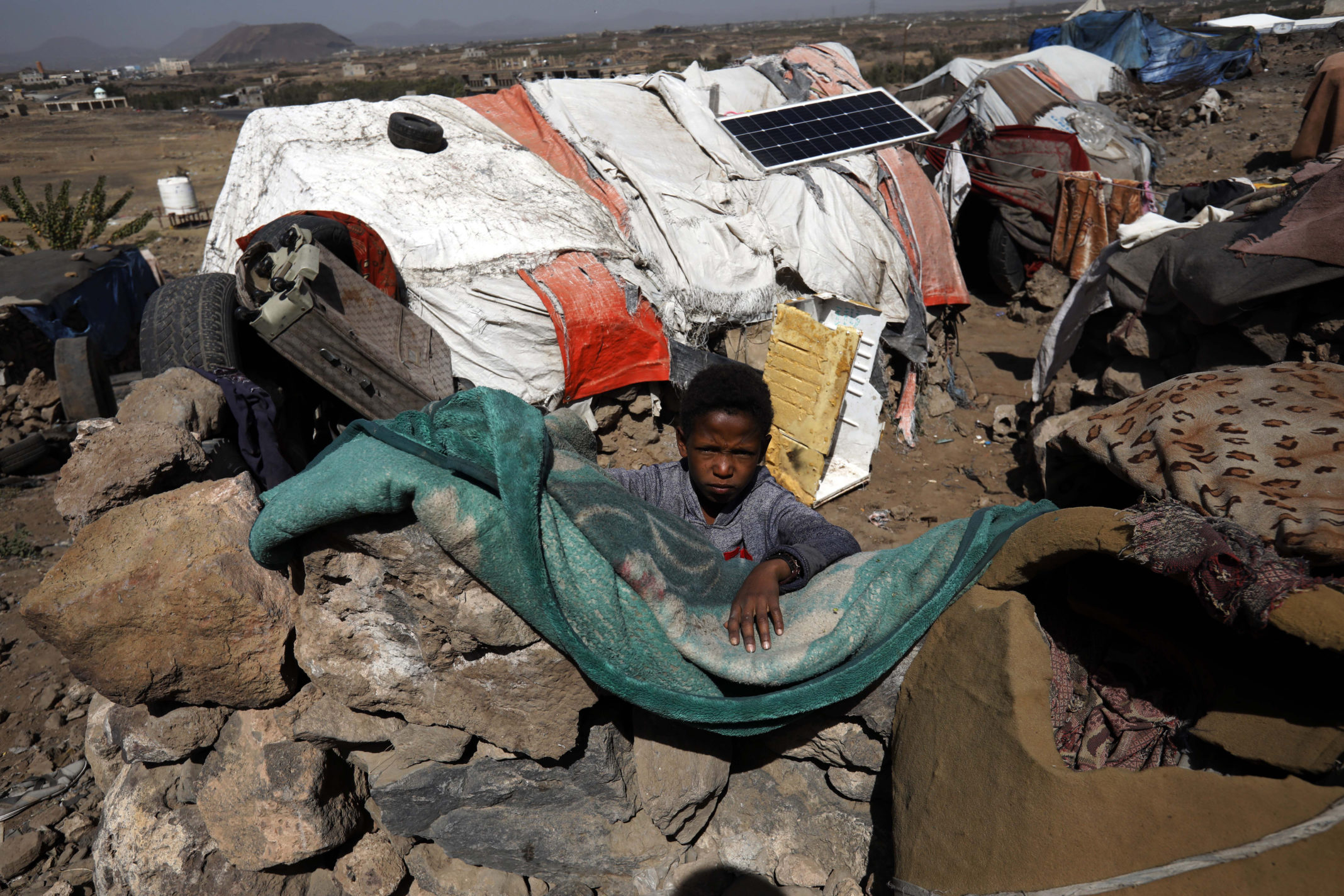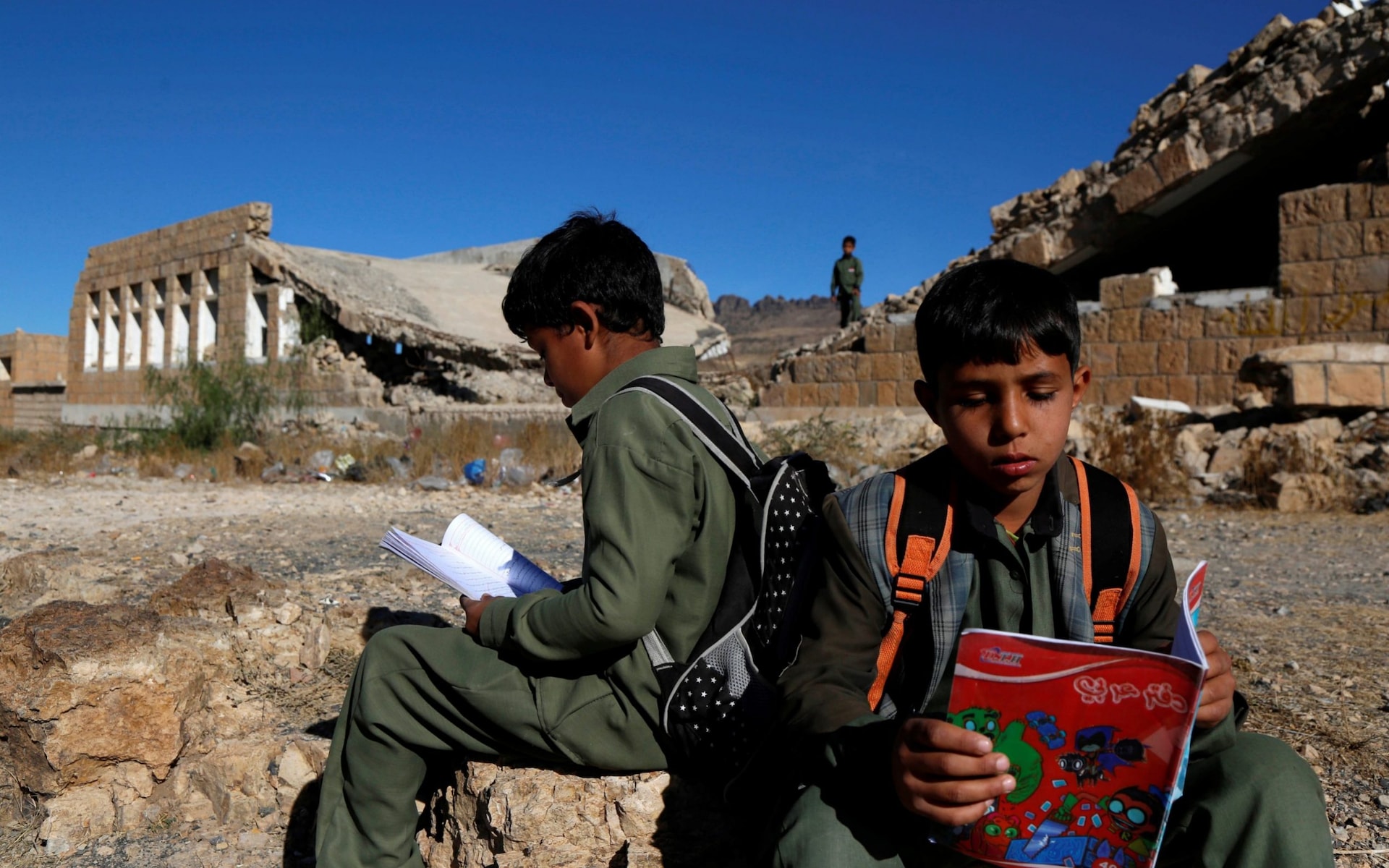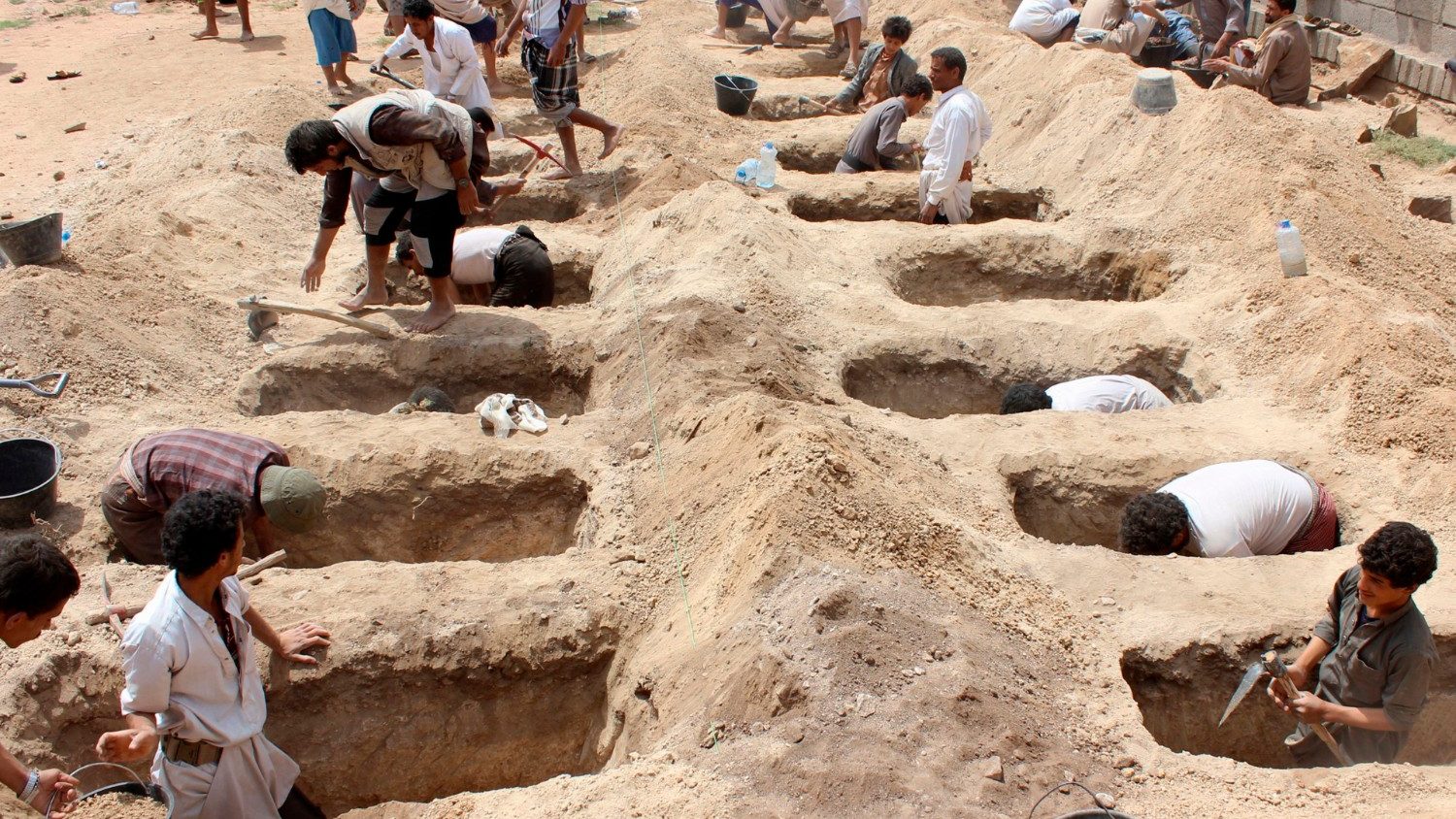by Allison Lee
Day after day, the media has been pushing out waves of similar content – Black Lives Matter, Pride Month, and the occasional COVID-19 update. It’s great that we’re making space for important news, but what happens when other equally pressing news is drowned out of attention? I’m talking about none other than Yemen, the messy cauldron boiling over with a civil war, a dash of famine, a sprinkle of coronavirus, and a pinch of cholera. Talk about a tall order of humanitarian crisis!

The Sparks of Civil Unrest
The aching question in your mind right now must be: “So, why is there a sudden outburst of violence in the Middle East resident?”
Right off the bat, the turmoil in Yemen is anything but ‘sudden’. The initial signs of trouble could be traced back to the failed political handover of 2011 when Ex-President Ali Abdullah Saleh was overthrown and forced to cede the position, along with the nation’s pre-existing problems — rebellions, corruption, unemployment, poverty, famine, and shortages — over to the interim President Abdrabbuh Mansour Hadi, who evidently failed to keep the situation composed. Naturally, no one had expected Hadi to bring the country out of peril immediately, but Hadi presented a weak government facing the array of crises. As reiterated by history, a weak government is like waving a red flag to the bull that is insurgency.
When the truth of Hadi’s impotence materialized, the Yemenis directed their support toward the Houthis, an Islamic political movement that surfaced in the 1990s. As 2014 came to an end, the Houthis established power in Yemen’s capital city, Sanaa, supposedly with Iran’s backing. In fear of his seat being toppled, Hadi fled to Saudi Arabia in 2015. We have seen textbook examples of when a country leader fails his or her own people, but forsaking the entire country is treachery. This acceleration of events soon tipped the country over the edge and into an inexorable civil war.
Now, we have to remember that Saudi Arabia and Iran have not seen eye to eye due to a long-standing religious conflict. Saudi Arabia suspected that Iran was acting as the backbone for the Houthis and promptly saw Yemen as a proxy battleground. Before long, a Saudi-led coalition intervened on Yemen grounds by bombing and shelling, all carried out in the name of driving out the rebels and restoring Hadi’s government.
The Saudi-coalition’s part in the civil war was supported by the US, UK, France, and more, with the listed countries supplying weapons to Saudi Arabia. Ever since this information came to light, public pressure has forced the Big Three to urge for a ceasefire, yet the sale of weapons into the Middle East is still running as smooth as a river. Well, there you go: yet another instance of all talk and no walk headed for the records.

The silence of world leaders, accompanied by the media under-coverage, gave the Middle Eastern forces implied permission to carry on with the war. Consequently, a selection of humanitarian laws was breached by all sides. War crimes including the likes of enforced disappearances, rape, torture, hostage-holding, and arbitrary detentions were seen to play out once again, mimicking their predecessors in the World Wars. Just last year, the Houthis, the Yemeni government, and the Saudi-led coalition all made it onto the United Nation’s “Children Killers” Blacklist; this list shouldn’t have a reason to exist in the first place. The raging war has also taken a toll on innocents, contributing to the deaths of over 112,000 civilians since the fighting started in 2015. Attacks are regularly targeted at the people who have done no wrong, and children are drafted as soldiers to fight a war they didn’t start when they should be receiving education to sow the seeds of their future. Now, they might never live to see these seeds come into full bloom.
Can you imagine that? A nation collectively suffering and marginalized by the rest of the world. Does this knowledge make you uneasy? Are you riled up yet? Because you should be.
The Aftermath of the Bombs
For the people of Yemen, securing survival essentials comes in the form of a pipe dream. The country’s unrest has opened doors for Al-Qaeda and other extremist parties to rise to power and fight each other (while also holding off foreign attacks) for control over ports and subsequently, supplies. With most of the supplies being raided by those groups and soldiers, the everyday people of Yemen are left to consume whatever they manage to scavenge, often resorting to crushing leaves into edible pastes. There are exceptional occasions where some do manage to gain access to necessities, but due to the pairing of supply shortage and high demand, prices have been driven up and are preposterously expensive.
If that doesn’t project an image in your mind about the ghastly reality Yemenis live with, maybe the numbers will: 13 million people deal with daily violence and starvation; 24 million depend on aids to get by; 3 million and more have had to leave their collapsing homes behind and seek shelter elsewhere. However, with airports shut down and borders guarded, where can they go? Every attempt to leave the country will most likely end in failure, leading the Yemenis back to square one.
The situation is even more dire for children: according to UNICEF, a jarringly large proportion of children require humanitarian assistance. These are children who lost their homes to the war, lack access to proper sanitation and clean water, and suffer from malnourishment. To cap it off, the UN has officially declared Yemen as one of the worst places to grow up as a child.
And those are just the debris of war.
While the rest of the world shoulders the fight against the coronavirus, Yemen is assuming more responsibilities than an individual country ever should. Yemen is going through a cholera epidemic, the coronavirus pandemic, and famine, all while the war wages on. Lately, headlines have announced that Yemen may disappear from world maps because of the sheer amount of problems pounding down the country’s doors and its inability to defend itself.
Having relatively less medical equipment and professionals in the country, Yemen does not have the manpower or capacity to run enough tests to track down every coronavirus carrier. A number of hospitals have also been destroyed in the war, resulting in a lack of proper facilities to house patients or supplies. Plus, we have to take into account that we’re talking about a population whose collective immunity is predictably lower than average (due to shortage of food), and potentially millions of unvaccinated kids. There have been reports of people digging extra graves ahead of deaths, as though the people have accepted their fates. Jean-Nicolas Beuze, who has worked with the UN for over twenty years, called the coronavirus “the straw which will break the camel’s back in Yemen”.

When was the last time a country dangled at the edge of being wiped off the map? A country whose people dug their own graves? There is no denying that we have failed the Middle East, more specifically, Yemen.
It isn’t fair that the media isn’t covering this issue the way it deserves to be reported. It isn’t fair that a country has to act as a playground for two bullies to fight on. It isn’t fair that Yemen has limited medical gear and technology to fight against the virus when the United States can equip their police with full-fledged riot gears. It isn’t fair that we have more than enough food to feed all 7.8 billion mouths, yet we allow famine to take root in Yemen.
At this point, I’m afraid that acknowledging injustice is not enough – it has never been and it never will be enough. We have to remember, Yemenis are people just like us. Their lives are just as valuable as ours. They are not statistics waiting to be presented in your future history textbook, they are lives to be saved.
How Can We Help?
Mirroring the many catastrophes that came before this, you will see petitions drawn and donations set up. Yes, donate to UNICEF and other organizations who are fighting tooth and nail to ameliorate this matter and sign petitions to end the sale of weapons to Saudi Arabia, but know that these are short-term solutions to long-term problems. It takes more than a one-time sum of money and a signature to enforce change.
There are several ways we can actively help Yemen:
- Freerice. This quiz game app donates 10 grains of rice to people in need via the UN’s World Food Programme for every correct answer you get. Simply spend ten minutes every day answering trivia questions and you’d be making a difference. Plus, the app offers a few interesting categories you can choose from, which will help you learn something new.
- ShareTheMeal. It costs only $0.50 to feed one child for a day. This crowdfunding app that fights hunger through the UN’s World Food Programme enables users to contribute small amounts and track their progress.
- Educate Yourself. If you’re not in a position where you can actively contribute to the UN’s projects, the bare minimum you can do is to educate yourself, be it via podcasts (“Voices from Yemen”) or YouTube videos (Yemen: A History of Conflict” by Foreign Policy Association, “Why is Yemen at War?” by Al Jazeera English). Understanding how Yemen came to be what it is today is crucial in avoiding the same mistake in the future. (Plus, you’ve already done well reading this article.)
- Educate Others. Get the word out. Make people aware of the situation in Yemen and inspire them to call for change as well. The simplest and most effortless way to save lives in this day and age is to spread awareness.
To quote Julian Assange, “Every time we witness an injustice and do not act, we train our character to be passive in its presence and thereby eventually lose all ability to defend ourselves and those we love.”
Now is the time to speak up about this and make our voices heard; not just about Yemen’s humanitarian crisis, but about every other hint of injustice that takes place outside of and behind doors. If people put in power will not prioritize the same crowd who gave them that power, remember, it is the responsibility of the rest of the world to condemn injustice and inequality, as much as it is our responsibility to give others what we so commonly take for granted.